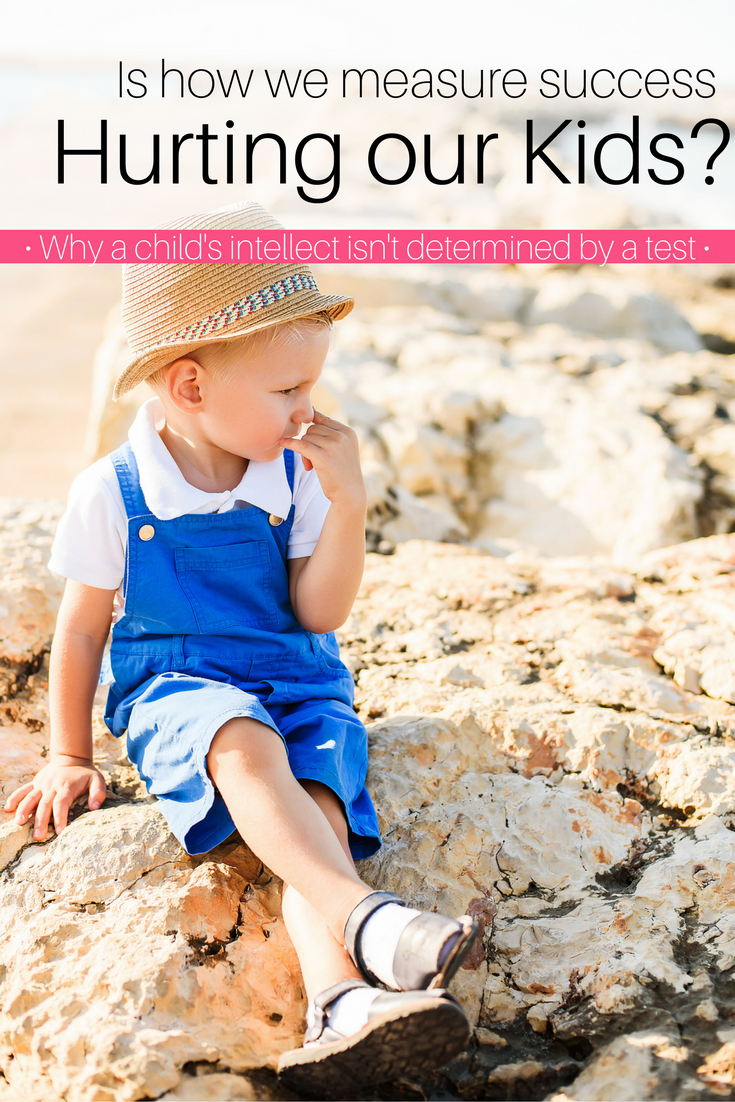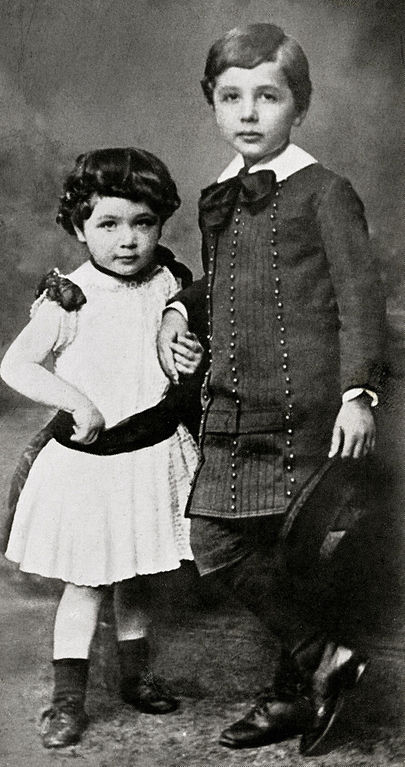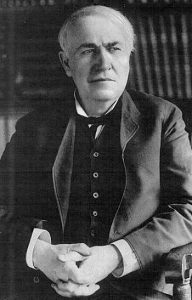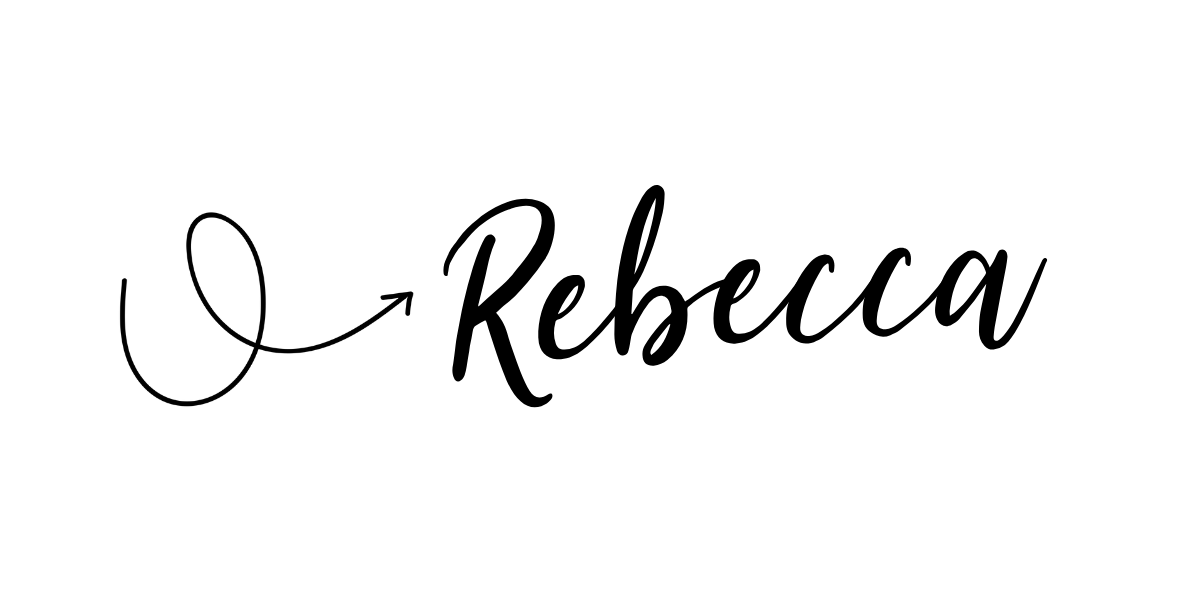Recently I heard someone refer to a particular child as “so bright” because they were excelling in school and it struck a chord. Referring to a particular child as “bright” is essentially saying they are smarter than the others. It had me questioning by what standard we attribute a child’s intelligence. I have had well-meaning people try to do that with my own very-different children—comparing ones that traditional learning comes easier to than others. But just because they learn the way education is typically approached, in the time period that is culturally acceptable, doesn’t mean they are smarter than their siblings. And in fact, that can be highly detrimental to the other kids that feel that they are “dumb” in comparison. It’s time to debunk the myth and expose the way children learn so that we can start seeing all children as bright, capable, full of wonder and creativity, rather than just the one that fits our little box of success.

PIN ME!
A look at Some of the Greatest Minds
 One of the greatest minds of all time, Albert Einstein, gives us a perfect example of this phenomenon. As a child, Einstein struggled in school. He wasn’t conventional—he thought outside the box. He was a late talker and thought in pictures in his mind. One of his teacher’s told him that he wouldn’t amount to much and his slow development made him the poster child for distracted students everywhere. What can we learn from this? More importantly, why haven’t we learned from this?
One of the greatest minds of all time, Albert Einstein, gives us a perfect example of this phenomenon. As a child, Einstein struggled in school. He wasn’t conventional—he thought outside the box. He was a late talker and thought in pictures in his mind. One of his teacher’s told him that he wouldn’t amount to much and his slow development made him the poster child for distracted students everywhere. What can we learn from this? More importantly, why haven’t we learned from this?
We measure intelligence through tests, neat printing, early reading, pace of development and those that might rise above their peers in our unnatural educational system. We put children—vastly different children—into a room with 20 other kids their age and we wait to see who will stand out in the crowd. THAT child must be truly a bright mind, full of potential, right?
The problem is that the way we measure success in our kids and label them thereafter is severely flawed. Every child develops at their own pace and our efforts to keep them running the race with other children who are on par with the national average can have devastating results. Instead of giving said child the opportunity to grow and learn at their own pace and find the area that interests them and they can truly succeed in, we begin to label them as “slow” or “behind” or “struggling”. Instead of giving them room and a safe place to be inspired and want to learn, we start telling them (if nothing else by our actions, our comparisons, and our attitude towards them) that they won’t amount to much. We kill their enthusiasm and desire to even try.

What about Thomas Edison? In some ways, this is an even better example of a brilliant mind that didn’t fit in the box of “traditional learning”. Edison had hearing impairment and struggled with hearing the lessons in school. His teacher called him “addled” and unteachable. After only 12 weeks in school, his mother pulled him out and homeschooled him, letting him experiment and learn to his hearts content. He found what he was interested in and pursued it with passion, with a mother that believed in him and without the pressure of the school system, he became one of the greatest minds of all time.
Success for Edison was not based on a test at all, but rather the freedom to take his unique gifts and interests and bring them to life.
Learning for the sake of some arbitrary line
Let’s take a second to acknowledge the purpose of learning. If a child is learning solely for the purpose of meeting some arbitrary line or to please a teacher or parent, it is meaningless to them. They are not doing it for the joy of learning, the love of learning, or even interest. They are simply being conditioned to do as they are told and fulfil the expectations that society places on them. While testing and national averages do help the rest of the world visualize the state of the education system, how is that applicable to the individual child? If we could stop looking so hard at the big picture and focus for a moment on the child, we might see a far more complex definition of success.
You see, success cannot be determined from the masses. It has to be unique to that child, what does success mean for them? Are they interested in their lessons? Are they passionate about what they are learning about? Are they thriving in their learning environment? Are they trying their best and engaged in learning? How can we, as parents and educators, help them measure success for themselves? Is it based on what they DO, what they HAVE? Or is it instead based on their creativity and what they, as a unique individual, have to bring to the world?
The parent’s role in success
We all play a role in the success of the next generation, but the parent moreso than any other. You see, our definition of success is the filter through which a child will view themselves. The traditional view of intelligence based on such broad spectrum variables that do not take into account OUR child only serve to limit our kids. No matter if your child is in school or homeschooled, our role in the future of our children is undeniable. Perhaps instead of comparing our children, we need to be believing in them. How our child performs on a test really has no weight in who they are or what their potential is!
We know the importance of believing in our children, and yet sometimes I wonder if it has become a cliché statement that we don’t put enough weight on. Do you truly believe that your child is destined for greatness? Even if they aren’t doing well in school or failed that last test or can’t seem to concentrate on a lesson? Do you believe that they can do anything they set their mind to? Because that belief in them is what will shape their perspective of themselves, will set the tone for their own self confidence. Success is a complex thing, and helping our children reach their full potential is simply not something that can be done based on the masses. Instead we need to help them overcome obstacles that come in their way, to see failures as just a little bump on the road, to unlock their minds to their potential. We need to help our children find their gifts, their interests, their passions so that they can pursue them and achieve greatness in what they are uniquely equipped to offer.
What do you think of the way we measure success? What role does traditional schooling play in your perception of “smart”? Comment below!
References:
Time Magazine
The Fascinating Story of Einstein’s Childhood
Biography.com
Learning Abled Kids

